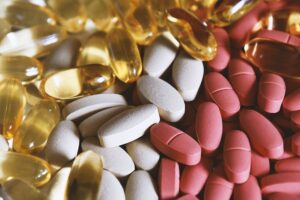How much Protein for Senior Bodybuilders?
Understanding Protein's Role for Senior Bodybuilders:
1. Factors Influencing Protein Requirements:
2. Recommended Protein Intake:
The recommended daily protein intake for senior bodybuilders varies based on factors such as sex, training intensity, and individual health status. A general guideline is to consume approximately 1.2 to 1.7 grams of protein per kilogram of body weight per day.
3. Importance of Distribution:
Dividing protein intake throughout the day is essential for optimising muscle protein synthesis. Seniors should aim to distribute their protein consumption evenly across meals, ensuring a steady supply of amino acids to support muscle recovery and growth.
4. Protein Quality:
Protein quality matters, especially for seniors. Complete protein sources, such as animal products (e.g., lean meats, fish, eggs) and plant-based options like quinoa, tofu, and legumes, offer all essential amino acids. A diverse diet that includes various protein sources enhances nutrient absorption and overall health.
5. Considerations for Seniors with Health Conditions:
Seniors with health conditions like kidney issues should consult their doctor to determine appropriate protein levels. Adjustments to protein intake might be necessary to accommodate specific medical needs.
Conclusion:
In this video, Thomas discusses how much protein should be consumed by senior bodybuilders.



